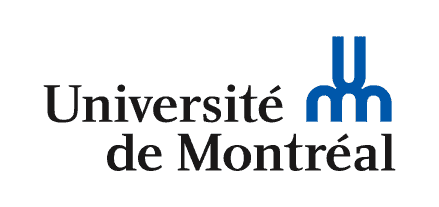

The Factory of Thinking
Protocols, Algorithms, Formats, and Worldviews
Marcello Vitali-Rosati
Giessen - 2022-01-18
Matter and thinking
“Yet another one who, instead of working, wastes his time playing with LaTeX”.
Plotinus and Porphiry
I myself, Porphyry of Tyre, was one of Plotinus’ very closest friends, and it was to me he entrusted the task of revising his writings. Such revision was necessary: Plotinus could not bear to go back on his work even for one re-reading; and indeed the condition of his sight would scarcely allow it: his handwriting was slovenly; he misjoined his words; he cared nothing about spelling; his one concern was for the idea: in these habits, to our general surprise, he remained unchanged to the very end. He used to work out his design mentally from first to last: when he came to set down his ideas, he wrote out at one jet all he had stored in mind as though he were copying from a book. Interrupted, perhaps, by someone entering on business, he never lost hold of his plan; he was able to meet all the demands of the conversation and still keep his own train of thought clearly before him; when he was fee again, he never looked over what he had previously written–his sight, it has been mentioned, did not allow of such re-reading–but he linked on what was to follow as if no distraction had occurred.
Women and computers
Deconstructing Plato?
- Jacques Derrida, « La pharmacie de Platon », Tel Quel, nᵒ 32,33 (1968).
New materialisms and Karen Barad
- Christopher N. Gamble, Joshua S. Hanan, et Thomas Nail, « What Is New Materialism? », Angelaki 24, nᵒ 6 (2 novembre 2019): 111‑34
- Karen Barad, Meeting the Universe Halfway: Quantum Physics and the Entanglement of Matter and Meaning, (Durham: Duke University Press Books, 2007).
Double slit
Thomas Young, 1801: is the light a wave or a set of particles?
Bohr argued that if we were to perform a two-slit experiment with a which-path device (which can be used to determine which slit each electron goes through on its way to the detecting screen), we would find that the interference pattern is destroyed. That is, if a measurement is made that identifies the electron as a particle, as is the case when we use a which-path detector, then the result will be a particle pattern, not the wave pattern that results when the original unmodified two-slit apparatus is used. Karen Barad, Meeting the Universe halfway, p. 103
Concepts are specific physical arrangements
Bohr’s argument for the indeterminable nature of measurement interactions is based on his insight that concepts are defined by the circumstances required for their measurement. That is, theoretical concepts are not ideational in character; they are specific physical arrangements. Karen Barad, Meeting the Universe halfway, p. 109
Matter matters
Writing…
- Tools, protocols, algorithms, formats… think.
- How do they think? What do they think?
Word
Kirschenbaum, M. G. (2016). Track Changes: A Literary History of Word Processing. Cambridge, États-Unis d’Amérique: The Belknap Press of Harvard University Press
A computer for writing??
Writing code and documentation, saving and printing it.
- 1976 Electric Pencil - Michael Shrayer
- 1979 Easy Writer - John Thomas Draper
- 1979 WordStar: WYSYWYG - for the concept of page
- Home computers - 1984
- 1983 Word
The principles
- graphic interface
- printing is the goal!
- office!
- format=software
The effects
- WYSIWYG and “disintermediation”
- loss of skills
- loss of control
- poor information
- loss of utility (using a computer as a typewriter)
- sustainability issues
- a formatted way of thinking
Creating one’s own writing environment
Stylo
- A text editor conceived for writing papers in Human Science stylo.huma-num.fr
Basic principles
Take advantage of the semantic skills of the author
Give the author back control over the structure and semantics of the text.
An editor which is:
- simpler: clear interface, fewer options, fewer features
- richer: markup, bibliographic management, metadata, multiple exports
- semantics: WYSIWYM
A modular application
3 main modules + technical modules:
- Metadata Editor
- yaml
- DC, RDFa, Foaf, ScholarlyArticle, Google Scholar, Prism schema
- Controlled vocabulary
- Alignment with authorities (Rameau, Wikidata, LOC)
- Via the researchisidore API (Huma-num)
- Text editor with internal markup
- Markdown enriched
- others?
- Bibliographic Management
- BibTeX
- Api Zotero
- Conversion
- pandoc (to html, LateX, pdf)
- XSLT (to TEI-LOD, Erudite)
- Versioning
- git
- version comparator
- API
:::
Cultivate our garden
“All that is very well,” answered Candide, “but let us cultivate our garden.” Voltaire, Candide